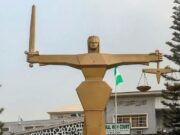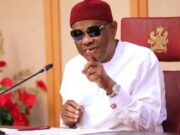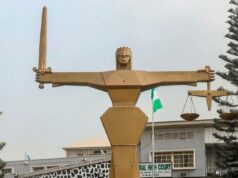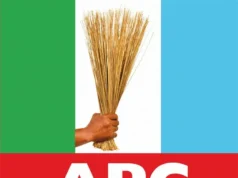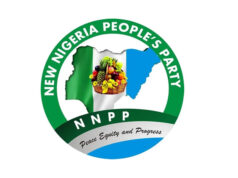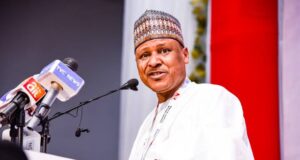President Tinubu on Tuesday commended the embattled governor of Rivers state, Siminalayi Fubara for his commitment to toeing the part of peace in the political civil war that ensued between him and his predecessor, Nyesom Wike.
The president singled him out for recognition among members of the Nigerian Governors Forum (NGF), who visited him in Lagos on Boxing Day.

Noting that good governance can only occur in an atmosphere of peace, the president praised the Rivers governor for statesmanship.
Tension had enveloped the state, following the outbreak of disagreement between the governor and his predecessor, Nyesom Wike.
Although the President had initially intervened in the crisis, the gladiators went back home to resume hostilities.

Irked by Fubara’s position, 27 lawmakers, led by Speaker Martins Amaewhule, commenced impeachment proceedings against him while four lawmakers secured an ex-parte injunction which recognised Edison Ehie as Speaker.
To forestall the degeneration of the conflict into violence, President Tinubu intervened for the second time and brockered a truce signed by the two parties at Aso Villa.
Supporters of the governor objected to the peace deal, saying that it was undemocratic and dictatorial.

But Fubara, in a Christmas Day broadcast, reiterated his commitment to the peace deal aimed at fostering tranquility.
President Tinubu said yesterday: “I thank you for your statesmanship. I listened to your broadcast and your emphasis on peace. It is only with peace that effective governance can thrive, and governance has commenced in earnest under my watch”
Eyes are on Fubara and the Martins Amaewhule-led House of Assembly to fully implement the eight items contained in the peace resolutions.

Out of the eight-point resolution, only two had been fully implemented; one by Fubara and one by the House of Assembly.
While the Amaewhule-led House, a day after the meeting, implemented resolution two by withdrawing an impeachment notice, Fubara confirmed that he had enforced item four by paying the withheld entitlements of the lawmakers.
Many people believe that the loyalists of the factional Speaker Ehie are behind the protests because Ehie’s interest was not captured in any of the eight-point resolution.

Efforts by the Amaewhule-led House to withdraw motions it filed in a suit instituted by Fubara in obedience to the ‘Resolution Number One’ have proved abortive due to some legal hurdles.
While the lawmakers’ counsel tried to withdraw the motions, Fubara’s lawyer said he had not received a mandate from his client to withdraw the main suit.
When the Rivers State High Court sitting in Isiokpo, Ikwerre Local Government Area, resumes on January 31, Fubara’s case and the lawmakers’ motions would be withdrawn.

Rivers people are anxiously waiting for the House to reconvene after the Yuletide to see whether Resolutions Three and Five mandating the governor to recognise the Amaewhule-led House and allow them to choose its place of sitting would be implemented.
Stakeholders are also waiting to see whether the governor would implement Resolutions Six and Seven requesting him to re-present his already signed budget to a fully constituted House of Assembly and to reappoint commissioners, who resigned during the crisis.

Despite the pressure mounted on the governor by persons, who felt their interests would be jeopardised with the full implementation of the agreement, Fubara had reinstated his commitment to the peace pact.
The governor said having studied the terms of the proclamation, he “has come to the conclusion that the peace pact is not as bad as it might be portrayed by those genuinely opposed to it”.
He insisted that the peace accord “is not a death sentence”, describing it as opportunity to achieve the needed stability in the state.


